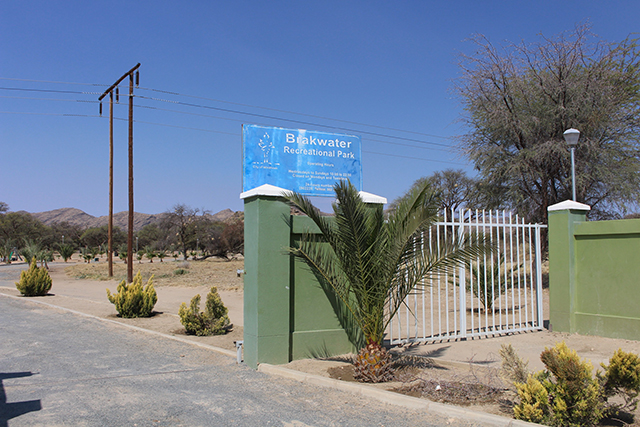A 2018 decision by the City of Windhoek to commercialise the once-popular Brakwater Recreational Park, affectionately known as the Paaltjies, seems to have backfired as visits by Windhoek residents to the facility have significantly dropped and threaten to turn the park into a white elephant.
The municipality in 2018 announced that Windhoek residents and those from surrounding areas would no longer access the Paaltjies for free, as they would be required to pay around N$500 for private functions and N$1 500 for corporate events.
At the time, the decision caused an uproar among the city’s inhabitants and many threatened to boycott the facility until the municipality revisited or revoked its decision to charge the public for the use of the park.
Paaltjies is situated about 20km north of Windhoek off the B1 at Brakwater, and boasts an array of braai sites, picnic tables and children’s playgrounds and ablution facilities.
When it was freely accessible to the public, many families from Windhoek and nearby areas would flock there over the weekends for family parties, braais and other functions.
But ever since the introduction of those tariffs in 2018, the Paaltjies has not been the same and a recent visit by New Era revealed how deserted the place has become and how most residents have no intention of reconnecting with their once-beloved family park.
James Angula, who resides at the Elisenheim Estate, an affluent residential area north of Windhoek, said he was a regular at the Paaltjies on weekends and would take his wife and children there for some family time but the 2018 tariffs changed all that.
“We, the Windhoek residents, are already paying a lot for of electricity and other services and the only thing that would bring families together over weekends was taken away from us. With those charges still in place, it means I have to pay each time I take my family there and I have a family of seven. I simply cannot afford it. The municipality should seriously revisit its decision and open the park free to families again; that’s the least they can do for us residents,” he said.
Another Elisenheim resident Lelanie Kauapirura, a mother of three, equally complained that the decision by the City of Windhoek to monetise the Paaltjies never made any sense from the start, as it was the only place where families could share moments and catch up.
“I mean just go there and see for yourself; people no longer visit Paaltjies. It is because they can’t afford to pay the entry fees and the place will soon turn into a white elephant if nothing is done to change the situation. You will only see a small group of people partying there once in every four or five months, and that was never the case in the past. I don’t even think they [municipality] are making any money from their decision. It was a very unwise decision,” she added.
Silver Petrus, a father of one who resides in Katutura’s Wanaheda location, recalled how the Paaltjies was once a place for social networking and celebrating family milestones.
“When I graduated in 2015, my family took me there to celebrate and we braaied and partied the whole day long. Now that I’m a father myself, I would love to take my young boy and friends there for some family time but I can’t afford the fees they are charging us. I don’t even see people going there anymore, so I don’t really know if it was a good decision by the City of Windhoek,” he said.
Reached for comment, Harold Akwenye, the City of Windhoek’s manager for corporate communication, marketing and public participation, admitted that public visits to the Paaltjies have severely dropped but maintained that the municipality had no choice but to introduce the tariffs as maintaining the facility was becoming unsustainable.
“But we will soon embark on an aggressive marketing campaign with the hope of enticing the public again. People should also understand that the water, electricity, the taps and all those ablution facilities at Paaltjies cost money to maintain.
“Other municipalities countrywide are now also following suit by charging for the use of recreational facilities; things can’t just be for free. But as said, we have seen the drop in visits to the Paaltjies and we are working on making the place public friendly again. We have plan in place for that,” explained Akwenye.
-ohembapu@nepc.com.na


